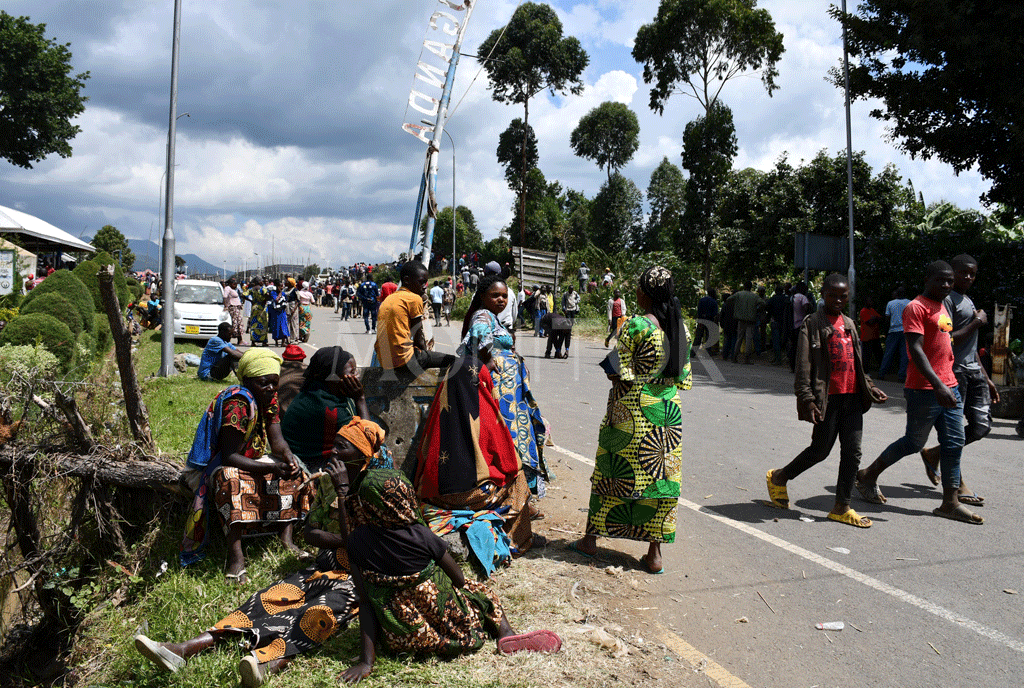Prime
Did Uhuru relieve Museveni of rebel M23 ugly diplomacy?

Author: Asuman Bisiika. PHOTO/FILE
What you need to know:
In one act of Luweero tactics diplomacy, Mr Museveni has re-gained the confidence of the Congolese
It was ominous. The gloomy faces of the East African leaders betrayed the absence of a sense of union of purpose. Even the ‘Ol’ Ma Wit Hat’ could not deliver one of his trademark icebreaker jokes to lighten up the dull atmosphere.
Yet in spite of the cloudy atmosphere in the room, a resolution was crafted: the East African Community would send a military force to the DR Congo. Forgive my hunch, but I have a very strong feeling that one of the presidents in the meeting room didn’t approve of this resolution.
The East African Force will be under the command leadership of the Kenya Defence Forces. We would expect Burundi will be happy to participate. Uganda already has troops in the DR Congo under a bilateral agreement. But Tanzania may not participate in this force. So, we are likely to have three national contingents namely Kenya, Uganda and Burundi.
Since the DR Congo accuses Rwanda of supporting and resourcing the M23 rebels, the East African force will not include a contingent from Rwanda.
****************
Some people ask: Is it that the M23 is strong or the DR Congo military is so weak? How can a rebel group said to have been destroyed in 2012 appear with such zeal and resources? Where does that leave MONUSCO, the United Nations forces in DR Congo? What does the M23 actions speak to the so-called international community? Is the M23 humiliating the UN?
Yes, the East African Community has resolved to deploy a military force in eastern DRC. It is unprecedented; I am afraid this could be the first time an East African force has formally been deployed in a member state. So, what is its mandate? Is it a peace keeping or peace enforcing force? What if the M23 attacks the East African Force? Why military deployment not talks?
Unlike in 2012, this time M23 rebel actions have not attracted a heavy condemnation from the international community and accusations (and threats?) against Kigali. And Kinshasa just gave up fighting and concentrated on putting lots of diplomatic pressure on Kigali. With the deployment of an East African Force, should the region in general (and the Congolese in particular) expect the end of the M23? Will the Ugandan and Kenyan troops accomplish what the Tanzanians did by whipping the M23 rebels off Congolese soil?
I can vouch that rebel M23 is a bona fide Congolese outfit. But I am also familiar with the rebel group’s failure to distance itself from the accusation of being Rwanda’s stooges. Even with very good justification for war, the M23 has totally failed to frame themselves as a nationalist movement. Mixing their (M23’s) agenda with what are clearly Rwanda’s interests in the DR Congo has lost them a nationwide support base.
The M23’s Rwandaphone identity, interests and projection is not good nationalist business; because it inadvertently attracts allegations of foreign support and patronage.
************
In the end, Mr Museveni had to take charge of stuff. The tweets had to be stopped. To manage (avoid?) the ugly diplomacy surrounding the M23, he sought refuge in the East African Community. He brought a reluctant President Uhuru onside. It was a diplomatic coup. Mr Museveni is ‘disqualified’ to (even) suggest the idea of deploying an East African force into Congo to fight M23. So, President Uhuru (as chair of the East African Community) relieved him of the burden.
In one act of Luweero tactics diplomacy, Mr Museveni has regained the confidence of the Congolese and retained the policy objective of Congolese friendship based on security and economic mutual interests.
Mr Bisiika is the executive editor of the East African Flagpost. [email protected]



